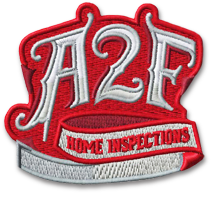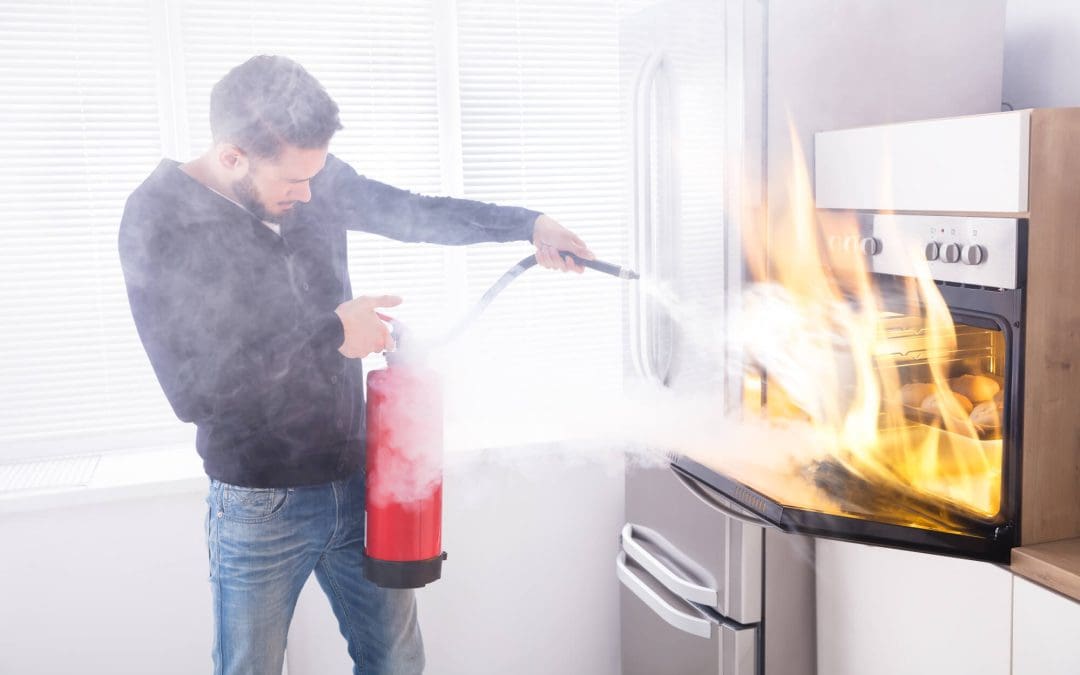House fires have devastating consequences, but the good news is that most fires are preventable with proper safety measures. By taking proactive steps, homeowners significantly lower the risk of a fire occurring in their home. In this guide, we’ll explore several effective strategies to prevent a house fire, from kitchen safety to electrical care.
1. Practice Kitchen Safety to Prevent a House Fire
The kitchen is the most common area for house fires to start, primarily because of cooking accidents. Never leave the stove unattended when cooking, especially when frying with oil, which can quickly ignite. It’s also important to keep flammable items such as dish towels, paper towels, and wooden utensils away from the stove. Regularly clean your oven and stove to prevent grease buildup, which can catch fire.
In the event of a grease fire, never use water to extinguish it. Instead, cover the pan with a metal lid or use a fire extinguisher designed for kitchen use. Staying vigilant and attentive while cooking is the most effective way to prevent a kitchen fire.
2. Maintain Your Electrical System
Faulty wiring and overloaded electrical systems are fire hazards. Verify that your home’s electrical system is in good condition by scheduling regular inspections with a licensed electrician, particularly if you live in an older house. If you notice flickering lights, frequently tripped circuit breakers, or a burning smell from outlets, these may be signs of electrical problems that need immediate attention.
Avoid overloading electrical outlets and power strips, as too much demand on a circuit can cause overheating. Use surge protectors to protect your appliances, and avoid using extension cords as permanent solutions. Unplug appliances and electronics when they are not in use to prevent electrical malfunctions that can lead to fires.
3. Be Careful with Heating Equipment
During colder months, heating equipment like space heaters, fireplaces, and wood stoves can increase the risk of a house fire if not used properly. Always place space heaters on a level surface and keep them at least three feet away from flammable materials like curtains, bedding, and furniture. Never leave a space heater on when you leave the room or go to sleep.
If you have a fireplace, clean it regularly, and have your chimney inspected and swept at least once a year to prevent creosote buildup, which is highly flammable. Use a fireplace screen to prevent embers from escaping and starting a fire in your home.
4. Install and Maintain Smoke Alarms
Smoke alarms are your first line of defense in detecting a fire and alerting you to danger. Install smoke alarms on every level of your home, inside each bedroom, and outside sleeping areas. Test the alarms monthly to confirm they’re working correctly, and replace the batteries at least once a year.
Try upgrading to interconnected smoke alarms so that when one alarm goes off, they all do. If your smoke alarms are more than 10 years old, it’s time to replace them. These simple actions will make a big difference in keeping your family safe.
5. Keep Flammable Materials Safe to Prevent a House Fire
Flammable materials such as gasoline, paint, and cleaning products should be stored in well-ventilated areas away from heat sources. Many of these substances release vapors that can ignite if exposed to an open flame or spark. Store them in proper containers with tightly sealed lids, and never keep them near electrical equipment, furnaces, or water heaters.
For those with a garage, make sure the space is free of clutter, especially near where you store flammable liquids. A garage filled with paper, rags, or other combustible materials is more vulnerable to fire if a flammable substance accidentally ignites.
6. Practice Candle Safety
Candles create a cozy atmosphere, but they are also a common cause of house fires. Always place candles on stable, heat-resistant surfaces and keep them away from flammable items like curtains, books, or bedding. Never leave a burning candle unattended, and extinguish it before leaving the room or going to bed.
Switch to flameless, battery-operated candles for a safer alternative, especially if you have pets or small children. If you prefer traditional candles, make sure they are out of reach of children and animals to prevent accidental tipping.
7. Establish a Fire Escape Plan
Even with all the best prevention strategies in place, accidents can still happen. It’s essential to have a fire escape plan and make sure everyone in your household knows what to do in the event of a fire. Identify two ways out of each room, and practice your escape plan regularly.
Make sure all windows can be easily opened and that everyone knows where the nearest exits are. Teach children how to escape and the importance of not hiding during a fire. Having a plan in place can save precious time and prevent injuries or fatalities during a fire emergency.
8. Use Caution with Smoking Materials
Smoking materials such as cigarettes, cigars, and pipes are a leading cause of fatal house fires. If you or someone in your household smokes, it’s important to do so with extreme caution. Never smoke in bed or when feeling drowsy, as falling asleep with a lit cigarette is a recipe for disaster.
Make sure smoking materials are fully extinguished before disposing of them and always use deep, sturdy ashtrays. Empty ashtrays regularly, and never discard smoking materials directly into a trash can where they may ignite other materials.
9. Invest in Fire Extinguishers to Help Prevent a House Fire
Having fire extinguishers placed strategically around your home can help stop small fires from becoming major disasters. It’s recommended to have an extinguisher in the kitchen, near the fireplace, and in the garage. Make sure everyone in the household knows how to use a fire extinguisher and when it’s appropriate to do so.
Remember the acronym PASS: Pull the pin, Aim the nozzle at the base of the fire, Squeeze the handle, and Sweep the extinguisher from side to side. Regularly check the expiration date on your extinguishers and replace them as needed.
Preventing a house fire requires diligence and ongoing attention to safety measures throughout the home. From proper kitchen habits to maintaining electrical systems and using heating equipment responsibly, there are numerous steps for homeowners to take to protect their families and property from fire hazards. By following these tips, you’ll reduce the risk of a house fire and keep your home a safe haven for you and your loved ones.
FAQs on How to Prevent a House Fire
What should I do if I notice my outlets are warm to the touch?
Warm outlets are a sign of potential electrical issues. It could indicate that the circuit is overloaded or that there’s a problem with the wiring behind the outlet. In either case, this poses a fire risk. Stop using the outlet immediately, unplug anything connected to it, and call a licensed electrician to investigate the cause.
How can I prevent spontaneous combustion in stored materials?
Some materials, such as oily rags, can spontaneously combust when stored improperly. If rags have been used with products like oil, gasoline, or paint thinner, they should be dried flat, in a single layer, in a well-ventilated area before being stored in a metal container with a tight-fitting lid. The container should be kept away from heat sources or direct sunlight.
Is it safe to have fire pits or outdoor fireplaces, and how can I minimize the risks?
Yes, outdoor fire pits and fireplaces can be safe if used correctly. Set them up at least 10 feet away from structures or flammable materials like fences or overhanging trees. Use only approved firewood or logs, avoid using lighter fluid or gasoline to start the fire, and always keep a fire extinguisher, garden hose, or bucket of water nearby. Make sure the fire is completely extinguished before leaving the area unattended.
Attic to Foundation provides home inspection services to the greater Atlanta area. Contact us to request an inspection.

